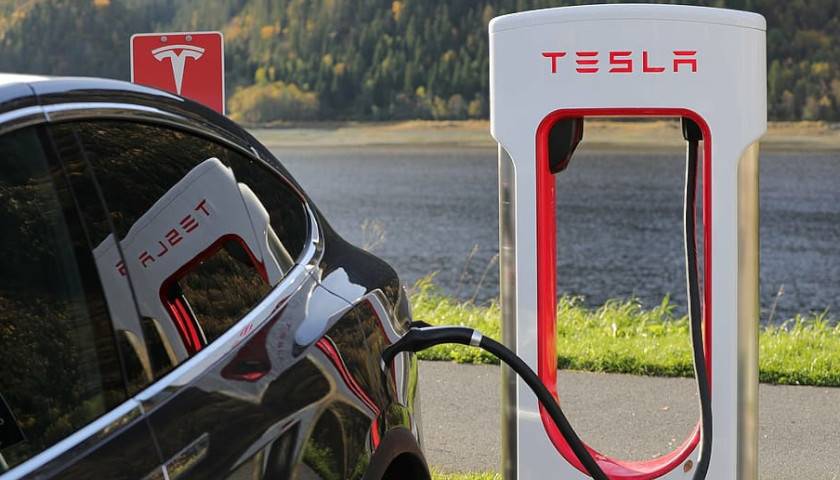by Addison Smith
The Environmental Protection Agency on Wednesday announced what is being considered its strongest-ever proposed pollution standards for gas-powered vehicles – which if enacted would effectively mandate that 67 percent of new passenger vehicles sold in the U.S. in 2032 must be zero-emission ones.
The rule has been expected for weeks and is a dramatic, proposed increase from President Biden’s stated goal of 50 percent zero-emission passenger car sales – including battery-powered electric vehicles, plug-in hybrids and fuel-cell vehicles – by 2030. It would also likely and dramatically increase EV sales, which accounted for just 5.6 percent of new car sales in the U.S. last year, according to Road & Track.com.
The proposal is being praised by those who support a move toward renewable energies and away from vehicles that run on refines fossil fuels and emit carbon dioxide. However, critics of such a transition are raising concerns – including those on the U.S. abandoning its supply of vast natural resources and fewer domestic manufacturing job.
“Biden’s radical EPA is trying to regulate your car’s engine into OBLIVION,” tweeted GOP Rep. Chip Roy.
The Texas lawmaker also called on his GOP-led House to “use the power of the purse to END the weaponization of the federal bureaucracy” by “slashing EPA’s funding.”
Former Trump EPA transition team member Steve Milloy also criticized the proposal as regulatory “tyranny” and said the requirements would be “impossible” to meet.
– – –
Addison Smith is a reporter at Just the News. Follow Addison on Twitter.







Where is the electricity going to come from for all of these EVs? And how will it be generated?
The Biden handlers know full well that we do not have all the required technology to outlaw gas run automobiles and replace them with EV’s, and won’t have it for a long while. EV’s are fine, if you never need to do anything but go to work, or shopping. Don’t plan on any long trips because the EV’s aren’t going to take you very far. Then when you need to charge you car where do you find a charging station? Who is going to pay for that charging? There are just too many questions that need to be answered before this country, or really any country, will be able to go total electric